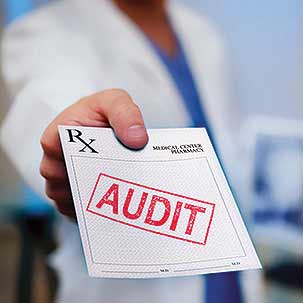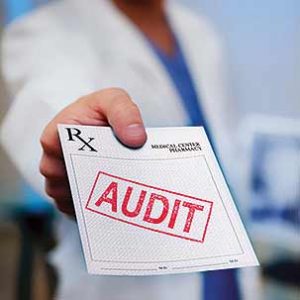Today’s Topic: Did you know the DOJ never tires of chasing the bad guys?
If a pharmacy is going to engage in nefarious activities, it should expect to get caught. Fraud in these cases is generally easy to prove. Simply verifying inventory, orders and dispensing records yields incredible data that when combined with comparative data from peer pharmacies can be used by law enforcement to establish that fraud has been committed.
Latest Enforcement Activity
On April 13, 2022, the U.S. Department of Justice (DOJ) announced a 78-month prison sentence imposed against a 37-year-old owner/operator of several pharmacies in New York, Aleah Mohammed (Mohammed). The sentence was as a result of guilty plea entered by Mohammed in April 2021 for charges of mail fraud, health care fraud and conspiracy to commit health care fraud. As part of her guilty plea, Mohammed agreed to forfeit $5.1 million and pay $6.5 in restitution.
During the course of her criminal conduct, Mohammed engaged in multiple schemes to defraud health care programs, including obtaining more than $6.5 million from Medicare Part D Plans and Medicaid drug plans. Over a five-year period, Mohammed submitted fraudulent claims to Medicare and Medicaid for prescription drugs that were:
- not dispensed;
- not prescribed as claimed;
- not medically necessary;
- dispensed during a time when one or more of the pharmacies she operated was no longer registered with the State of New York; and
- often for expensive prescription drugs to treat HIV.
Adding to the mounting evidence against her, Mohammed led a lavish lifestyle and purchased luxury items such a Porsche and jewelry.
Lessons Learned
It seems that criminals never learn. They think that they are smarter than law enforcement and will never get caught. But rarely do those criminals win in the end. It is basic accounting and law enforcement knows how to do that. Law enforcement mines each pharmacy’s data and looks for outlier information as compared to peer pharmacies as well as inventory data. So what information did the DOJ have at its disposal in this case?
- On hand inventory. As with any payer audit, the payer (and law enforcement) can obtain information concerning inventory on hand. If the pharmacy never had the inventory, it could not sell the drug.
- Drug purchasing records. Again, unless a pharmacy had the drug in inventory or purchased the drug through one of its wholesalers, it is hard for the pharmacy to defend against fraud charges when it is filing a claim for drugs never in its inventory.
- Dispensing records. Dispensing records also reveal information essential to determining what was in inventory, what was purchased and what was dispensed.
- Comparative data concerning dispensing of high-cost drugs as a proportion of other drugs sold.
- Comparative data looking at peer pharmacies for dispensing trends.
Collectively, the data and these records make it easy for law enforcement to identify and prosecute fraudulent claims. Even so, criminals seemingly are undeterred, and schemes like this one are repeated time and again.
Closing Thoughts
Simply put, crime does not pay. It does not matter whether it is in the pharmacy industry or elsewhere, when government funds are involved, law enforcement will surely be looking for wrongdoers. This probably is not the last case of its kind this year, so expect to see more news of pharmacies/pharmacists behaving badly.

 By:
By: 
 By:
By: 
 By:
By: 
 By:
By:  By:
By:
 By:
By: